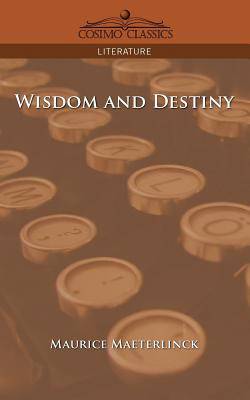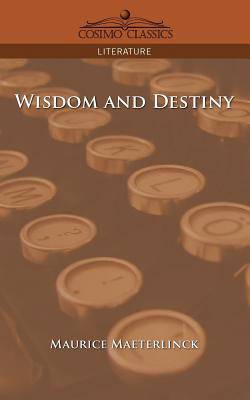
Bedankt voor het vertrouwen het afgelopen jaar! Om jou te bedanken bieden we GRATIS verzending (in België) aan op alles gedurende de hele maand januari.
- Afhalen na 1 uur in een winkel met voorraad
- In januari gratis thuislevering in België
- Ruim aanbod met 7 miljoen producten
Bedankt voor het vertrouwen het afgelopen jaar! Om jou te bedanken bieden we GRATIS verzending (in België) aan op alles gedurende de hele maand januari.
- Afhalen na 1 uur in een winkel met voorraad
- In januari gratis thuislevering in België
- Ruim aanbod met 7 miljoen producten
Zoeken
Omschrijving
As we go deeper down into life we discover the secret of more and more sorrow and helplessness. We see that many souls round us lead idle and foolish lives, because they believe they are useless, unnoticed by all, unloved, and convinced they have nothing within them that is worthy of love. But to the sage the hour must come when every soul that exists claims his glance, his approval, his love-if only because it possesses the mysterious gift of existence. -from Wisdom and Destiny His plays and poems sing with the beauty of life, the search for happiness, the inevitability of death, and here, in this exquisite 1898 essay, Maurice Maeterlinck contemplates directly the theme that consumes his other writing: the journey toward meaning and truth. Maeterlinck's questing, lyrical prose ushers us through his stream-of-consciousness thinking on the paradoxes of wisdom, which allows us to be as acutely aware of the tranquillity within reach as we are keenly cognizant of its uncerebral nature, and the demands of moral elegance, which demands self-sacrifice on the altar of duty. Compelling and complex, this is a classic of personal philosophy that greatly rewards close reading and appreciation. Belgian poet and playwright MAURICE MAETERLINCK (1862-1949) won the Nobel Prize in Literature in 1911. Among his most famous works are the play The Blue Bird (1908) and his first volume of verse, Les Cherres Chaudes (Hot House Blooms) (1899).
Specificaties
Betrokkenen
- Auteur(s):
- Uitgeverij:
Inhoud
- Aantal bladzijden:
- 380
- Taal:
- Engels
Eigenschappen
- Productcode (EAN):
- 9781596057128
- Verschijningsdatum:
- 1/02/2006
- Uitvoering:
- Paperback
- Formaat:
- Trade paperback (VS)
- Afmetingen:
- 127 mm x 203 mm
- Gewicht:
- 412 g

Alleen bij Standaard Boekhandel
+ 54 punten op je klantenkaart van Standaard Boekhandel
Beoordelingen
We publiceren alleen reviews die voldoen aan de voorwaarden voor reviews. Bekijk onze voorwaarden voor reviews.









